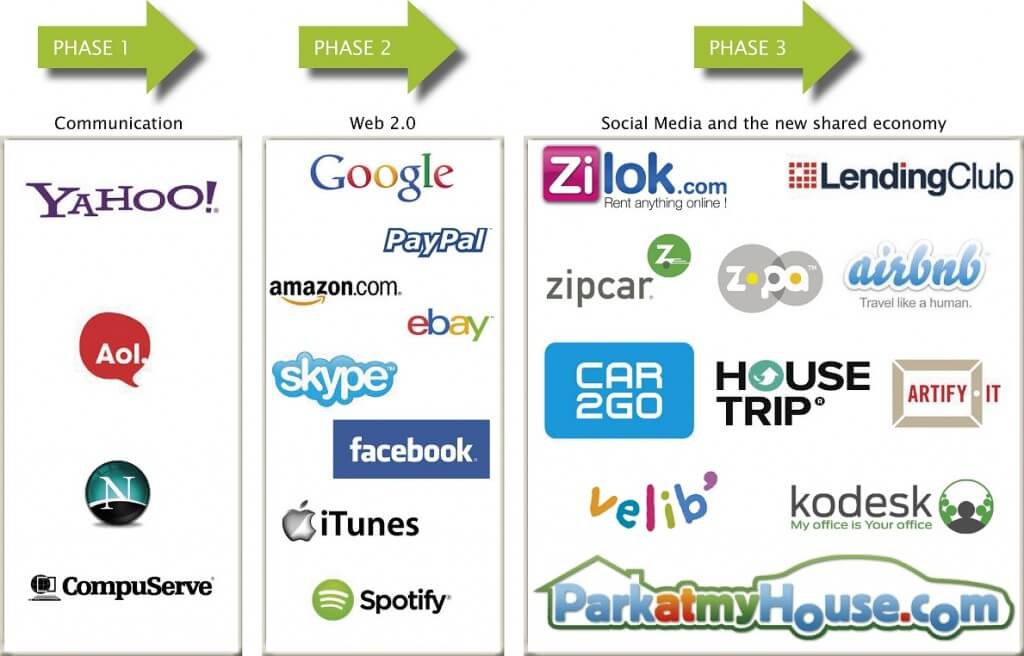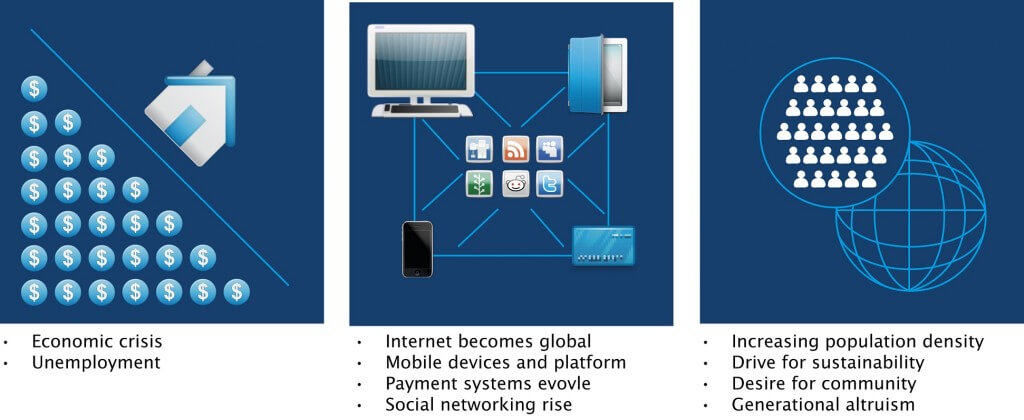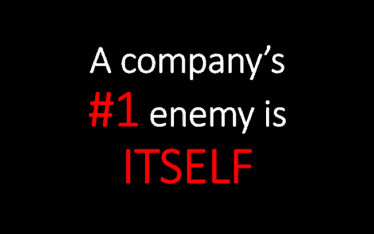The evolution of the Internet
The evolution of the Internet has shifted the relationships between sellers and buyers.
The first era of the internet was one-way, allowing corporations to better market their products to more customers.
The second era was social, empowering everyone to share their ideas.
The third era – the sharing economy – empowers customers to share actual goods and services, thereby enabling the peer-to-peer dynamics to undermine corporate dominance.

Only two decades ago exchange existed completely offline
Then Amazon paved the way, allowing people to buy from businesses online. eBay pushed the needle further by opening up online exchange between individuals. Now the sharing economy is making mainstream headlines.
Otherwise known as collaborative consumption or peer-to-peer marketplaces, the sharing economy is all about getting maximal use out of a product or asset, whether it’s renting out your apartment for a few days while you’re away or running errands.
What is driving the emergence of the collaborative economy
There are a number of societal, economic, and technical developments that are driving the emergence of the collaborative economy.
These include supports for connectivity – including increasing population density and people’s desire for community accompanied by the rise of social networking and multi-function mobile devices.
Also people’s attitude are shifting: More of them are more altruistic and motivated by a desire for sustainability and for more flexible livelihoods. They feel less need to own things as long as they have access to the services those things provide.
The driver behind the collaborative economy
The challenge to traditional consumer consumption patterns
The challenge to traditional consumer consumption patterns – which is driven by creating demand for items for consumers to purchase and own – lies in questioning the need to always own something. You don’t buy a DVD or book to own a disk or the paper, you purchase it to watch the movie or the read the story.
The product itself is not important, only the experience that they contain. Are we moving from a world where we’re organised around ownership to one organised around access to assets? Will access to assets be the new ownership?
The sharing economy is going mainstream
There are growing signs that the sharing economy is going mainstream – creating new jobs and a business model that promotes environmental sustainability through more efficient use of resources.
In the process, this emerging economy is disrupting traditional businesses such as hotels and taxi companies and forcing governments to rethink decades-old rules on taxation, labor and safety.
A growing number of people make a living from renting out spare rooms on Airbnb, performing errands and odd jobs as a TaskRabbit or ferrying people across the city as a driver for Lyft or Sidecar. Mobile phones and social media have fueled the phenomenon, helping build a culture of trust around the transactions.
Corporate business plans and market control are being challenged
Corporate business plans and market control are being challenged by the expansion of the sharing economy and its “collaborative consumption”. Some corporations are ignoring the challenge. Some are fighting it. Some are creatively joining it. All these responses add up to a complex and rapidly evolving economic landscape.
What will be next? What does it mean for businesses?
Short URL & title:
A technology driven change – The collaborative economy — http://www.torbenrick.eu/t/r/lkk
Share it:
If you enjoyed this article, please take 5 seconds to share it on your social network. Thanks!









About The Author
Torben Rick
Experienced senior executive, both at a strategic and operational level, with strong track record in developing, driving and managing business improvement, development and change management. International experience from management positions in Denmark, Germany, Switzerland and United Kingdom